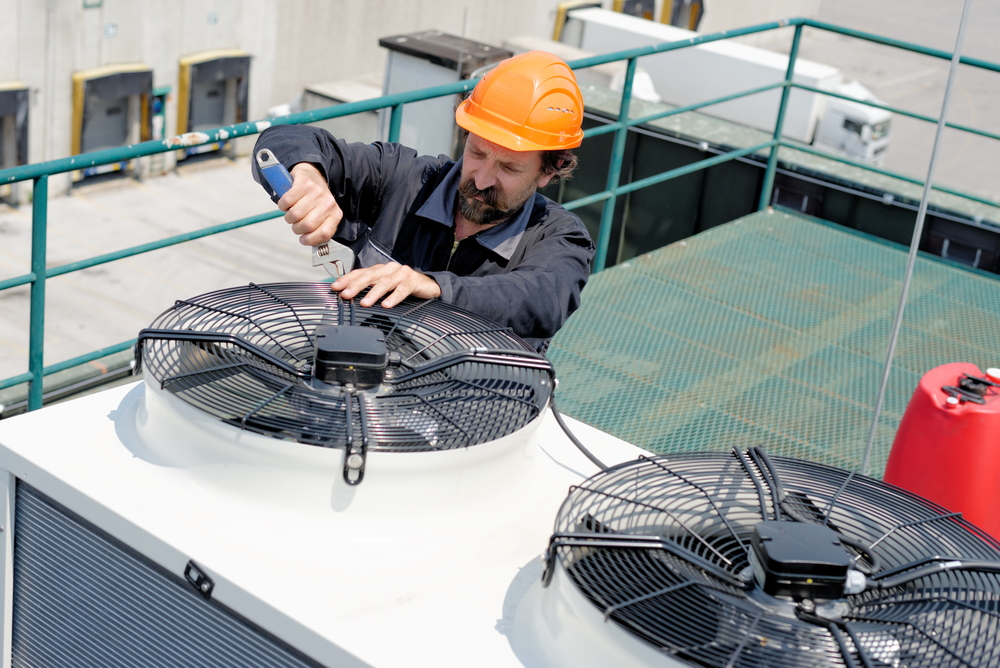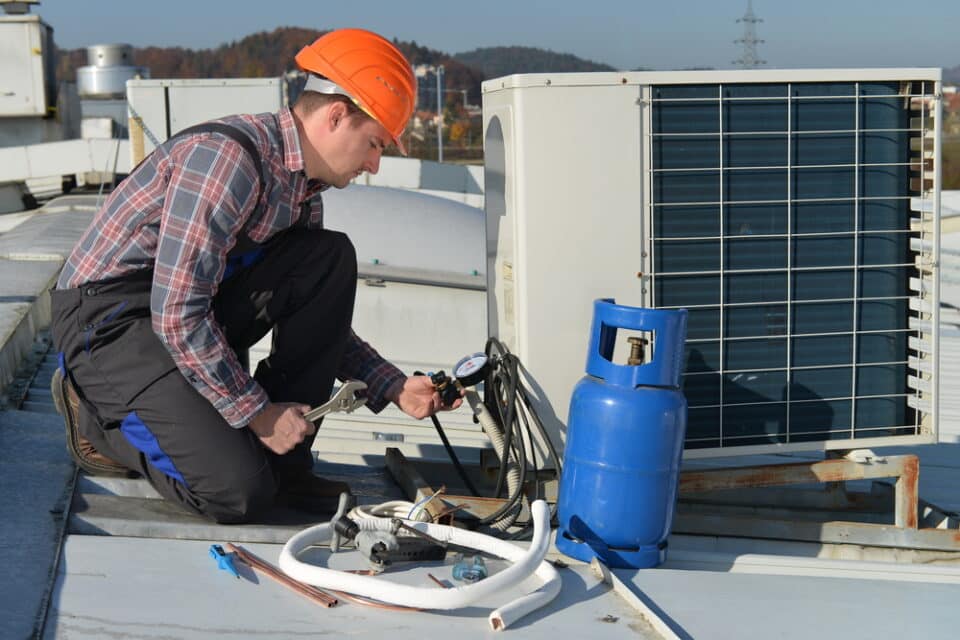Table of Contents
Introduction
Heating and cooling systems are essential for maintaining a comfortable living environment in your home. But how much do you really know about these systems and how to properly maintain them? Are you aware of the different types of heating and cooling systems available and the energy efficiency factors to consider? In this ultimate guide, we’ll cover everything you need to know about heating and cooling systems, including maintenance, repair, and energy efficiency. So, let’s dive in and become HVAC experts together!
1. Types of Heating and Cooling Systems
There are various types of heating and cooling systems available, each with its own set of advantages and disadvantages. Some of the most common systems include:
- Central air conditioning: A central air conditioner cools your entire home by circulating cool air through ducts. It is a popular choice for homeowners due to its efficiency and ability to maintain a consistent temperature throughout the home.
- Heat pumps: Heat pumps are versatile systems that can both heat and cool your home. They work by transferring heat from the outside air to the inside during the winter and reversing the process in the summer.
- Furnaces: Furnaces are a common heating system that uses fuel, such as natural gas, propane, or oil, to heat air. The heated air is then circulated through ducts to warm your home.
- Boilers: Boilers heat water, which is then circulated through radiators or radiant floor systems to provide heat. They can use various fuel sources, such as natural gas, propane, oil, or electricity.
2. HVAC Maintenance: A Preventative Approach
Regular maintenance is essential for keeping your heating and cooling systems running efficiently and avoiding costly repairs. Some maintenance tasks that you can perform yourself include:
- Changing air filters: Dirty air filters can restrict airflow and reduce the efficiency of your system. Replace or clean your air filters every 1-3 months, depending on the type of filter and how often your system runs.
- Inspecting and cleaning ductwork: Leaky or dirty ducts can reduce the efficiency of your heating and cooling system. Check your ducts for leaks and clean them regularly to ensure proper airflow.
- Checking thermostat settings: Ensure your thermostat is set to the appropriate temperature and programmed correctly for energy savings.
- Scheduling professional maintenance: It’s essential to schedule professional maintenance for your heating and cooling system at least once a year. A professional technician can inspect, clean, and tune-up your system to ensure it runs efficiently and safely.
3. Common HVAC Repairs
Even with regular maintenance, heating and cooling systems can experience issues that require repair. Some common HVAC repairs include:
- Refrigerant leaks: If your air conditioner is low on refrigerant, it may not cool your home effectively. A professional technician can locate and repair the leak and recharge the system with the correct amount of refrigerant.
- Electrical issues: Faulty wiring, broken circuit breakers, or malfunctioning capacitors can cause your heating and cooling system to stop working. A professional technician can diagnose and fix these issues.

- Ignition problems: If your furnace isn’t producing heat, it could be due to a faulty ignition system. A professional technician can determine the cause and repair or replace the necessary components.
- Blower motor issues: A malfunctioning blower motor can cause your system to overheat or not circulate air properly. A professional technician can diagnose and repair or replace the blower motor.
4. Energy Efficiency and Your Heating and Cooling System
Energy efficiency is an essential factor to consider when selecting and maintaining your heating and cooling system. An energy-efficient system can save you money on your energy bills and reduce your carbon footprint. Some factors to consider when evaluating the energy efficiency of a heating and cooling system include:
- SEER rating: The Seasonal Energy Efficiency Ratio (SEER) measures the efficiency of an air conditioner. A higher SEER rating indicates a more efficient system.
- AFUE rating: The Annual Fuel Utilization Efficiency (AFUE) measures the efficiency of a furnace or boiler. A higher AFUE rating indicates a more efficient system.
- ENERGY STAR certification: Heating and cooling systems with the ENERGY STAR label meet strict energy efficiency guidelines set by the U.S. Environmental Protection Agency.
5. Energy-Saving Tips for Your Home
In addition to selecting an energy-efficient heating and cooling system, there are several steps you can take to save energy and reduce your energy bills. Some energy-saving tips include:
- Sealing air leaks: Seal gaps and cracks around windows, doors, and other openings to reduce drafts and improve your home’s insulation.
- Installing a programmable thermostat: A programmable thermostat allows you to set temperature schedules, so your system isn’t running when you’re not home or when you’re sleeping.
- Using ceiling fans: Ceiling fans can help circulate cool air in the summer and warm air in the winter, reducing the workload on your heating and cooling system.
- Insulating your home: Proper insulation helps keep your home warm in the winter and cool in the summer, reducing the need for your heating and cooling system to run constantly.
Conclusion
Understanding the different types of heating and cooling systems, proper maintenance, and energy efficiency factors can help you make informed decisions about your home’s HVAC system. By following the tips and advice in this ultimate guide, you can ensure your heating and cooling system runs efficiently, saving you money on energy bills and keeping your home comfortable year-round.

